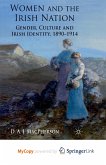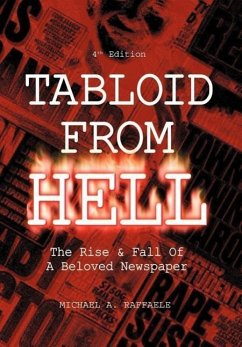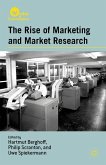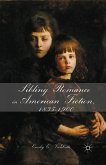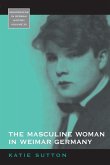An analysis of how since the end of te 19th-century advertising agencies and their housework product clients utilized a remarkably consistent depiction of housewives and housework, illustrating that that although Second Wave feminism successfully called into question the housewife stereotype, homemaking has remained an American feminine ideal.
"Extensively researched in advertising archives, mass magazines, and scholarly studies, this book persuasively argues that advertising for cleaning, food, and other household products has changed only modestly over the past 110 years." - CHOICE
"Thorough and interesting ... Neuhaus offers keen observations, and the book is well-written." - Journalism History
"This deeply researched analysis makes a valuable contribution to our understanding of how the cultural figure of the housewife in modern American advertising continues to perform the same function as the symbol did at the end of the 1800s, despite the widespread critique of the 1970s." - Juliann Sivulka, professor of American Studies, Waseda University and author of Ad Women: How They Impact What We Need, Want, and Buy
"With this book, Neuhaus continues her work in popular culture scholarship, this time closely examining commercial messages that were projected into the public arena in order to influence consumer behavior. She is a skilled reader of visual and verbal texts, a lively writer, and a fine researcher. To the standard practices of popular culture scholarship she adds research about the producers of those messages. Because of the limitations of popular culture scholarship as typically practiced, this additional research deepens the merits of the work as an historical analysis. It also sets the work apart from a plenitude of studies of housework, gender, and consumer culture." - Pamela Walker Laird, Professor, History Department, University of Colorado Denver
"Thorough and interesting ... Neuhaus offers keen observations, and the book is well-written." - Journalism History
"This deeply researched analysis makes a valuable contribution to our understanding of how the cultural figure of the housewife in modern American advertising continues to perform the same function as the symbol did at the end of the 1800s, despite the widespread critique of the 1970s." - Juliann Sivulka, professor of American Studies, Waseda University and author of Ad Women: How They Impact What We Need, Want, and Buy
"With this book, Neuhaus continues her work in popular culture scholarship, this time closely examining commercial messages that were projected into the public arena in order to influence consumer behavior. She is a skilled reader of visual and verbal texts, a lively writer, and a fine researcher. To the standard practices of popular culture scholarship she adds research about the producers of those messages. Because of the limitations of popular culture scholarship as typically practiced, this additional research deepens the merits of the work as an historical analysis. It also sets the work apart from a plenitude of studies of housework, gender, and consumer culture." - Pamela Walker Laird, Professor, History Department, University of Colorado Denver


